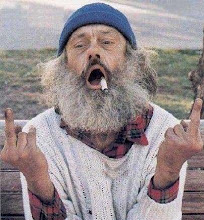
The Honeycombs - Can't get through to you [Warner Brothers 1965]
One night a group, known then as The Sheratons, was playing in a London pub, The Mildmay Tavern in the Balls Pond Road. In the audience were Ken Howard and Alan Blaikley, a very prolific British songwriting team, who later wrote hits for such artists as Lulu, Elvis Presley, Dave Dee, Dozy, Beaky, Mick and Tich and Petula Clark. Howard and Blaikley, then working in production for BBC Television, liked what they saw and suggested the band might like to hear some of their material. The band had an upcoming audition with indie record producer Joe Meek, whom most notably had produced The Tornados, and composed their number one hit ("Telstar") in 1962, and were eager for some new material. At the audition in Meek's studio in Holloway Road, they played Howard and Blaikley's "Have I the Right?" which Meek recorded.
Have I The Right?" hit number one in the UK and number five in the U.S. in the autumn of 1964 shortly after the start of the British Invasion. They were especially successful in Sweden (four consecutive number ones) and in Japan (where they issued a live album entitled, In Tokyo). Honey Lantree was an accomplished drummer and the star attraction of the group as she was one of very few female drummers at the time. The unique and heavily compressed bass drum sound on "Have I The Right?", which many other drummers of the period tried to replicate, was augmented by the group stamping on the stairs of Meek's studio. Meek achieved this by placing four microphones attached with bicycle clips under the stairs.
The group's founder Martin Murray had worked as a hairdresser, Honey Lantree being his assistant. They decided to combine his profession with the name of the drummer, and changed their name to The Honeycombs. They were signed to the Pye record label.
After proving a 'sleeper' for seven weeks the record took off in the summer of 1964 reaching the number one spot around the world
and selling over 2 million records. It was Meek's final hit in the
United States, where it was issued on the Interphon label (a Vee Jay label).
Listen to this Joe Meek penned b-side and get ready for an assault on your senses....
The Honeycombs Can't get through to you



.jpg)




